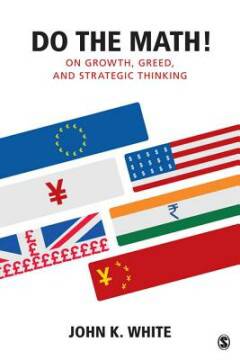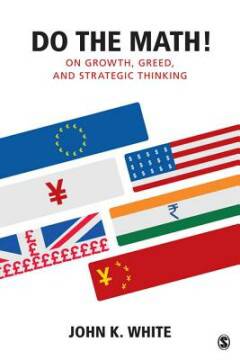
- Afhalen na 1 uur in een winkel met voorraad
- Gratis thuislevering in België vanaf € 30
- Ruim aanbod met 7 miljoen producten
- Afhalen na 1 uur in een winkel met voorraad
- Gratis thuislevering in België vanaf € 30
- Ruim aanbod met 7 miljoen producten
Zoeken
€ 70,45
+ 140 punten
Omschrijving
Our world has become more complicated, and the notion of growth at any cost has led to constant economic uncertainty, a permanently stressed-out workforce, and everyday stories of government and corporate corruption. John K. White argues that a better knowledge of basic systems is needed to understand the world we live in, and one place to start is with counting and mathematics. Without an understanding of mathematics, we make poor personal financial choices, and we can′t make the important decisions about government bailouts, oil supplies, or global warming. Do the Math! uses creative examples--borrowing liberally from the anecdotal and the academic, from literature and the newspaper, and from the stock market and the casino--to provide a thought-provoking guide to better understanding the world around us.
Specificaties
Betrokkenen
- Auteur(s):
- Uitgeverij:
Inhoud
- Aantal bladzijden:
- 392
- Taal:
- Engels
Eigenschappen
- Productcode (EAN):
- 9781412999595
- Verschijningsdatum:
- 14/03/2012
- Uitvoering:
- Paperback
- Formaat:
- Trade paperback (VS)
- Afmetingen:
- 152 mm x 226 mm
- Gewicht:
- 517 g

Alleen bij Standaard Boekhandel
+ 140 punten op je klantenkaart van Standaard Boekhandel
Beoordelingen
We publiceren alleen reviews die voldoen aan de voorwaarden voor reviews. Bekijk onze voorwaarden voor reviews.











